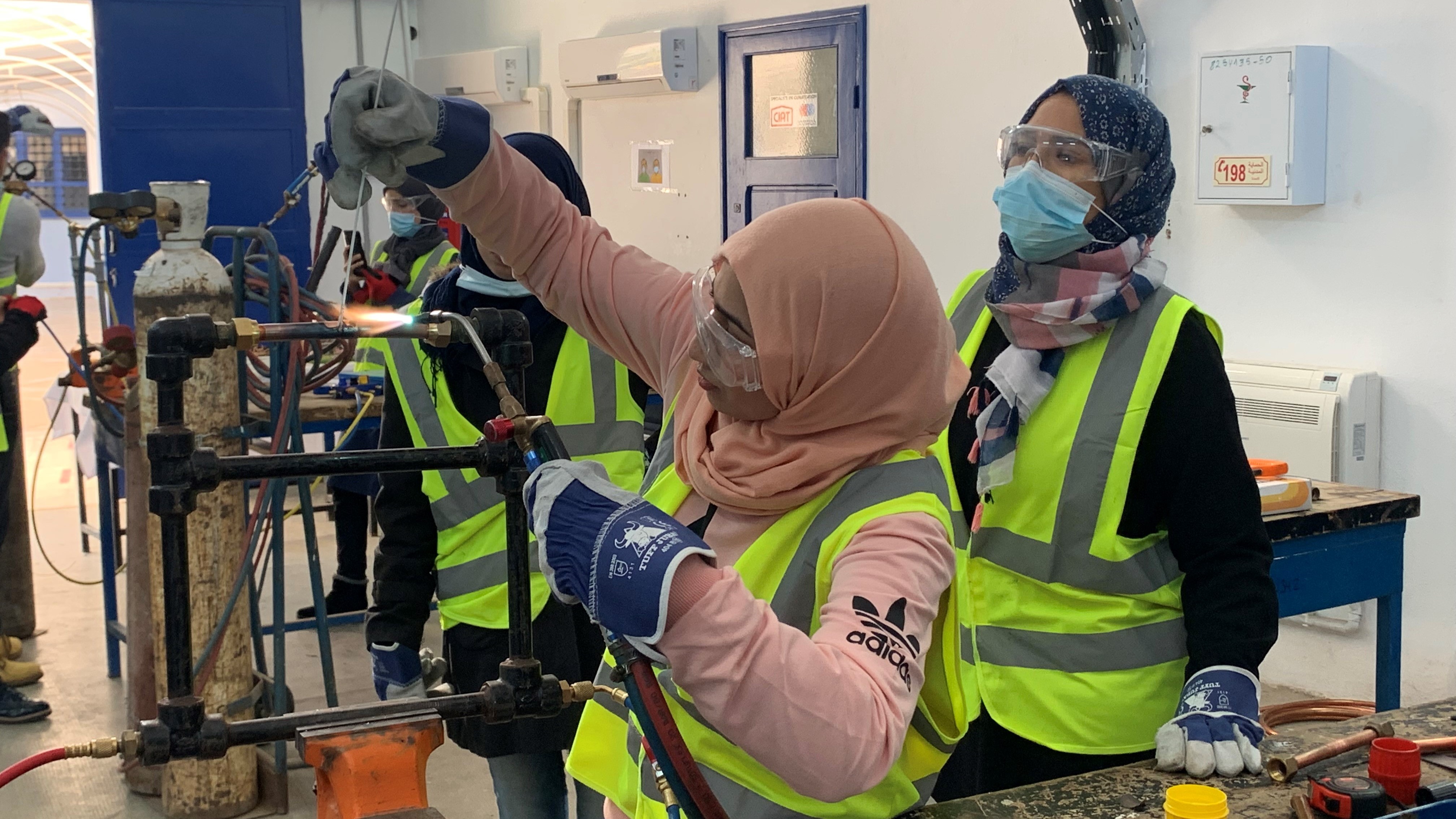UNIDO reaches a billion-dollar milestone on ozone and climate action
27 March 2023

VIENNA - Over 133 million metric tons of carbon dioxide-equivalent emissions, roughly equal to emissions from 28.7 million passenger vehicles driven in a year, were reduced due to UNIDO projects under the framework of the Montreal Protocol in 2022.
“UNIDO reached a major milestone in 2022—the cumulative funding received from the Multilateral Fund for the Implementation of the Montreal Protocol (MLF) to implement projects around the world crossed USD 1 billion mark (including the agency support costs), ” said Ole Nielsen, Chief of UNIDO’s Montreal Protocol Unit. “As one of the four implementing agencies of the MLF, UNIDO plays an active role in addressing climate change and promoting sustainable industrial development,” he said.
UNIDO delivers technical assistance to developing countries to help them comply with their obligations under the Montreal Protocol - a global environmental agreement created to safeguard the ozone layer and protect our planet, which came into force in 1989.
UNIDO enables the transformation of industries, especially the refrigeration, air-conditioning and foam sectors, while ensuring countries’ compliance with Montreal Protocol phase-out targets. “We work with industries, governments, and institutions to find sustainable alternatives to controlled substances. We also substitute each ton of ozone-depleting substances (ODS) with a less harmful substance or a new process; thereby have a tangible impact on the national, regional and global levels,” Nielsen explained.
The Montreal Protocol has a rich and inspiring history and considered as one of the examples of effective multilateral cooperation. By 2015, all Parties to the Montreal Protocol had successfully phased out chlorofluorocarbons (CFCs), Halons and other harmful substances as outlined in the treaty. These substances formed the critical elements in major industrial sectors. Phasing-out these substances required coordinated global efforts.
Since 2010, UNIDO has implemented 134 stages of hydrochlorofluorocarbons phase-out management plans (HPMPs) in 79 countries. Under the HPMPs, UNIDO has supported more than 400 enterprises in changing their production models to ensure that their manufacturing processes and products have a less harmful impact on the environment.
With the adoption of the Kigali Amendment to the Montreal Protocol in 2016, the 198 Signatory Parties committed to cut the production and consumption of hydrofluorocarbons (HFCs) by more than 80 percent over the next 30 years. This strengthens the ambitions of the Montreal Protocol and brings the treaty closer to the Paris Agreement. UNIDO is working to help countries ratify the Kigali Amendment and design their national Kigali HFC Implementation Plans to achieve further sustainable industrial transformation for the good of people and the planet.
For further information:
Ole Nielsen
Chief, Montreal Protocol Unit
Email